
The Reuters news staff had no role in the production of this content. It was created by Reuters Plus, the brand marketing studio of Reuters.
Produced by Reuters Plus for

Disclaimer: The Reuters news staff had no role in the production of this content. It was created by Reuters Plus, the brand marketing studio of Reuters. To work with Reuters Plus, contact us here.







Spanning large swaths of the world, the countries of the Global South are far from homogenous. One thing they do all have in common, however, is the list of challenges that women face: these are often borderless and range from specific difficulties around pregnancy and childbirth, to inequality and discrimination experienced throughout their lives. Japan is helping address these problems, and contributing to women enjoying fulfilled lives, through Femtech ventures.






The Reuters news staff had no role in the production of this content. It was created by Reuters Plus, the brand marketing studio of Reuters.
Produced by Reuters Plus for


Disclaimer: The Reuters news staff had no role in the production of this content. It was created by Reuters Plus, the brand marketing studio of Reuters. To work with Reuters Plus, contact us here.


Japan tackles women’s issues in the Global South via femtech



Monthly issues
Femtech startup Flora was founded in 2020 by two Ukrainians studying in Japan. The company’s operations have two main strands: Moonly, a B2C hormone-cycle and life-stage tracking app; and Wellflow, an AI-driven B2B platform that bundles telemedicine, medication delivery, and health products.
Wellflow was recently deployed in a Toyota group's factory staffed predominantly by women sewing products for automotive interiors. Productivity had been dropping significantly both before and during the women workers’ menstruation. Wellflow’s comprehensive approach, implementing telemedicine and education for both the women and mostly male management, more than halved time lost to absences, increased productivity by 16.3 percent, as well as improving health and workplace satisfaction. So impressed was Toyota Tsusho – a trading company of the Toyota group – that it invested in Flora.
“When you connect health issues to productivity and revenue, people listen,” noted co-founder Anna Kreshchenko, whose passion for karate was a major factor in choosing to study in Japan.
Though Flora’s headquarters are in Japan, the company has run trials in Vietnam and is currently discussing projects in India.
“We’re mostly focused on Asia because it’s such a huge but underserved market,” explains Kreshchenko. “There are no femtech unicorns [startups worth at least $1 billion] in Asia yet. But when you look at the sheer number of people and potential market size, there’s huge opportunity.”
Flora’s approach is particularly well suited to where women often toil silently through menstrual-related discomfort and workplace taboos persist. For example, in one factory in Vietnam, productivity declined during menstruation even more than among female workers in the same industry in Japan. This was in part due to the fact that many Vietnamese women had never seen an OBGYN or taken painkillers for menstrual symptoms. Meanwhile, there are cultural and religious issues around menstruation in India.
“Our first layer of intervention is health literacy,” adds Kreshchenko. “Many women just don’t know what kinds of solutions are available.”
Looking ahead, Africa is on the radar. “In five to ten years, the African healthcare market will grow, and we’re very interested in that future.”
Flora’s mission goes beyond business to structural change: “If you create an environment where diverse talent can thrive, productivity, motivation, and retention all go up. And we have the data to prove it.”
Femtech solutions
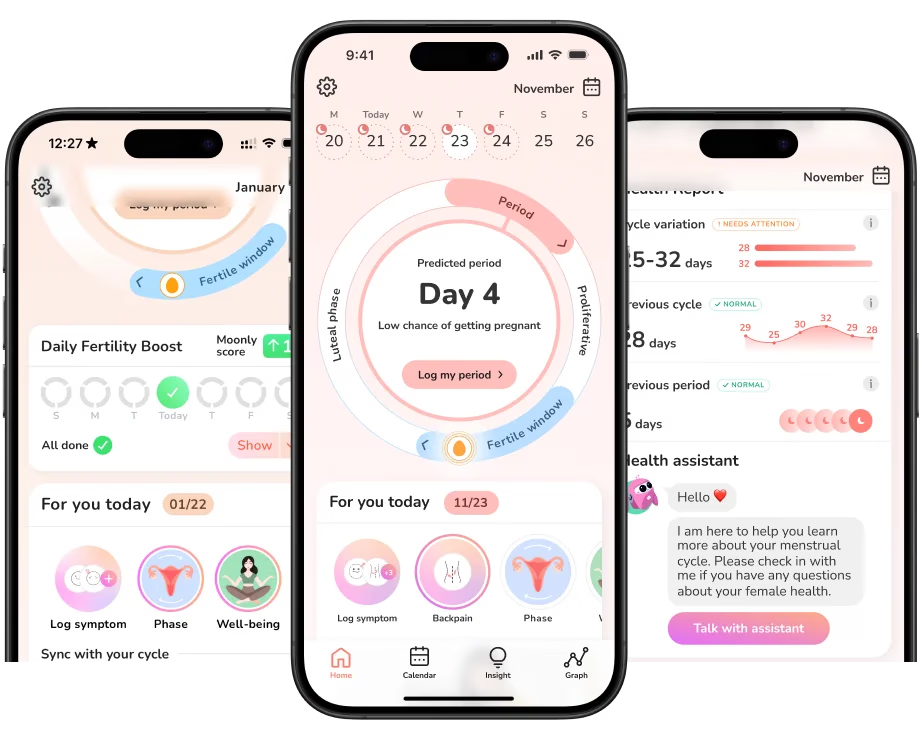
“If you create an environment where diverse talent can thrive, productivity, motivation, and retention all go up. And we have the data to prove it.”
– Anna Kreshchenko, co-founder, Flora


The sweetest melody
For pregnant women in areas without convenient access to a hospital or clinic, a delay in detecting problems with their unborn child can be catastrophic. Femtech startup Melody International develops fetal monitors that are saving lives in such underserved regions.
“In hospitals, fetal monitors are large and stationary. We miniaturized that technology so it could be used anywhere,” explains Yhuko Ogata, who co-founded the venture with Keiji Ninomiya.
Its flagship innovation is the iCTG fetal monitor, a compact, mobile device that enables real-time remote monitoring of fetal and maternal health. The iCTG transmits data via wi-fi or mobile networks, making it usable even in areas with limited infrastructure.
Currently deployed in Bhutan, Thailand, Indonesia, Vietnam, Brazil and several African nations, the monitor has proven invaluable for women in remote locations. Data from 1,500 patients in Thailand’s mountainous Chiang Mai region identified 50 abnormalities, resulting in 10 life-saving C-sections and earning a “Best Public Service Award” from Thailand’s Office of the Prime Minister.
On the right path
The economic and social conditions across the Global South’s diverse nations vary greatly, but women often face similar challenges, and though advances have been made, progress varies greatly. There is much more to be done, and Japanese startups are doing their part to tackle this by harnessing the power of tech.
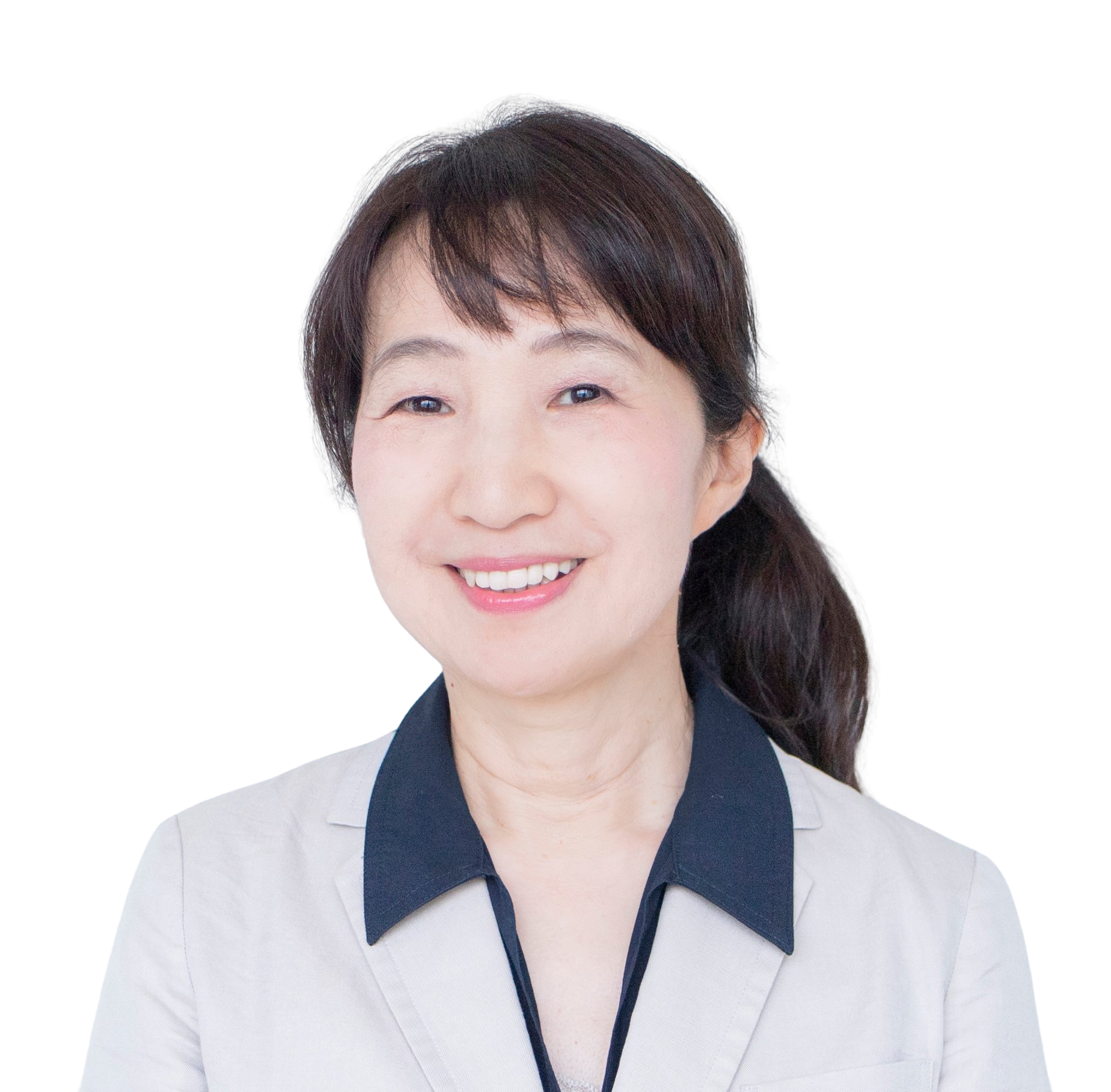
– Yhuko Ogata, co-founder, Melody International
“Listening to each country’s needs and responding accordingly has become our mission.”

Beyond the clinical results, the emotional impact is also powerful. “Hearing the baby’s heartbeat for the first time gives reassurance and joy, something pregnant women in Japan take for granted,” says Ogata.
Medical staff are trained in their native languages, both on-premise and online, to ensure the devices continue to be used effectively over the long term.
“Listening to each country’s needs and responding accordingly has become our mission,” reports Ogata.
True to its name, Melody International strives to bring the sweetest rhythm of all, the reassuring sound of baby’s healthy heartbeat and safe childbirth, to mothers everywhere.


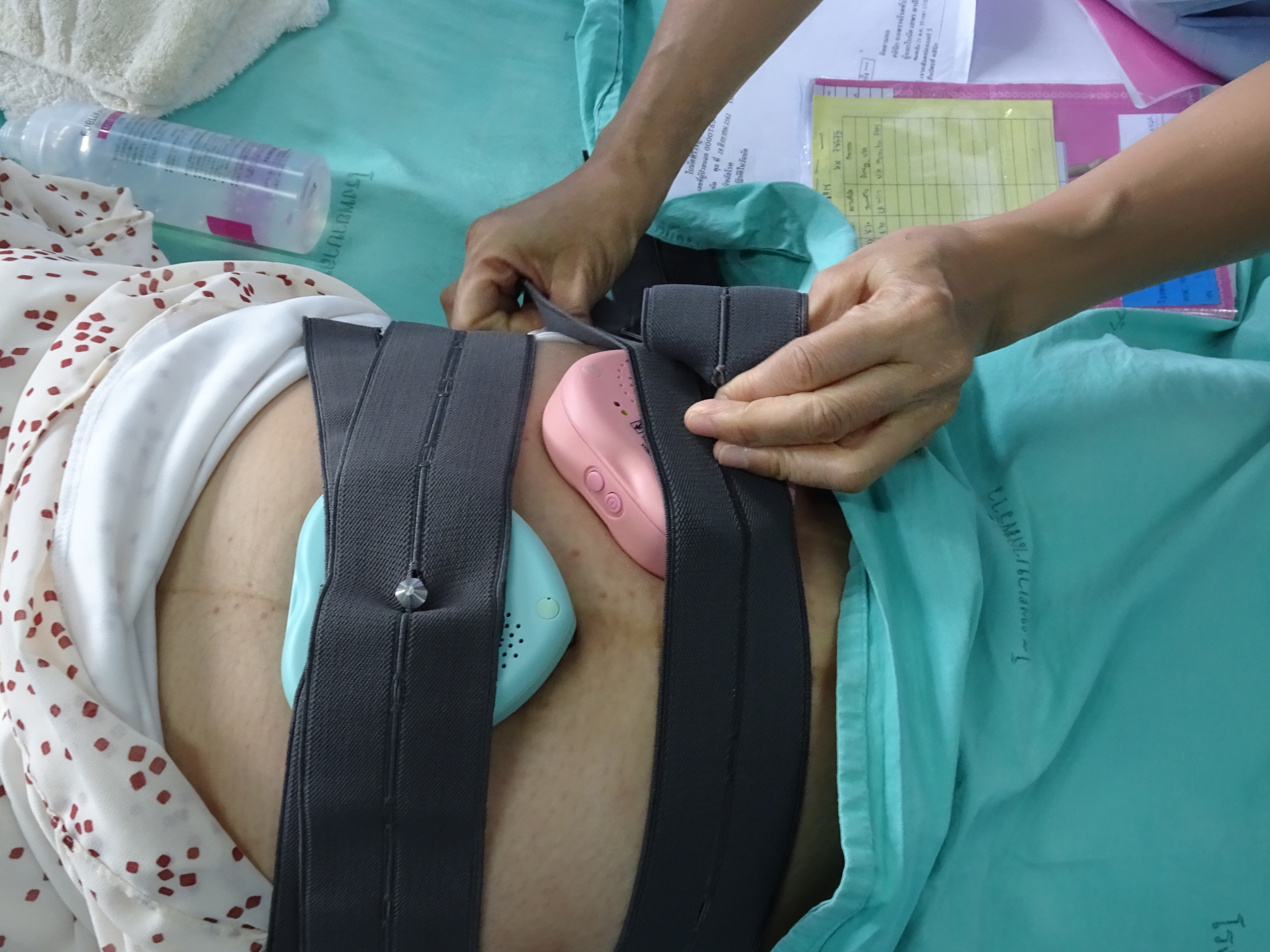
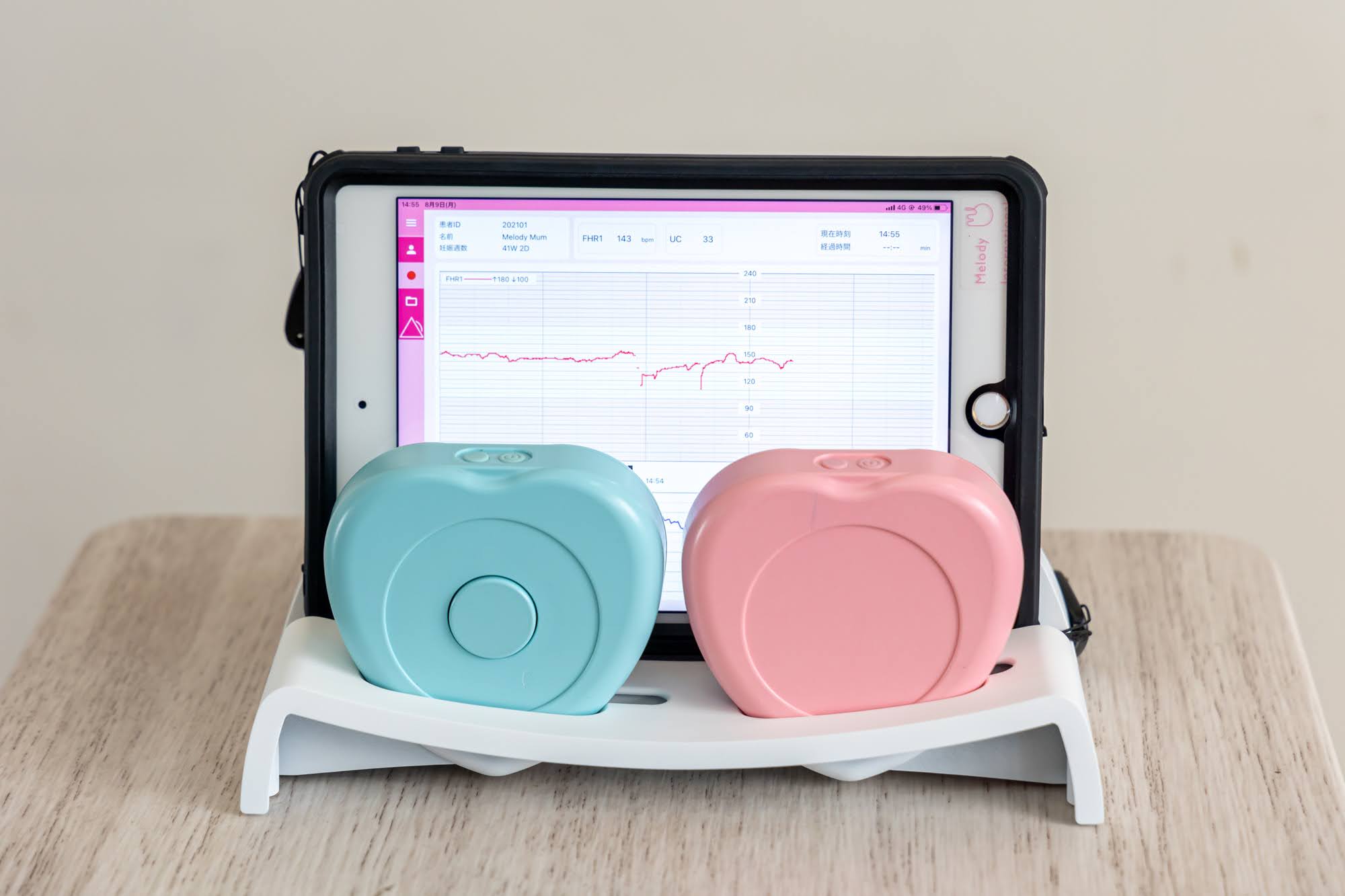
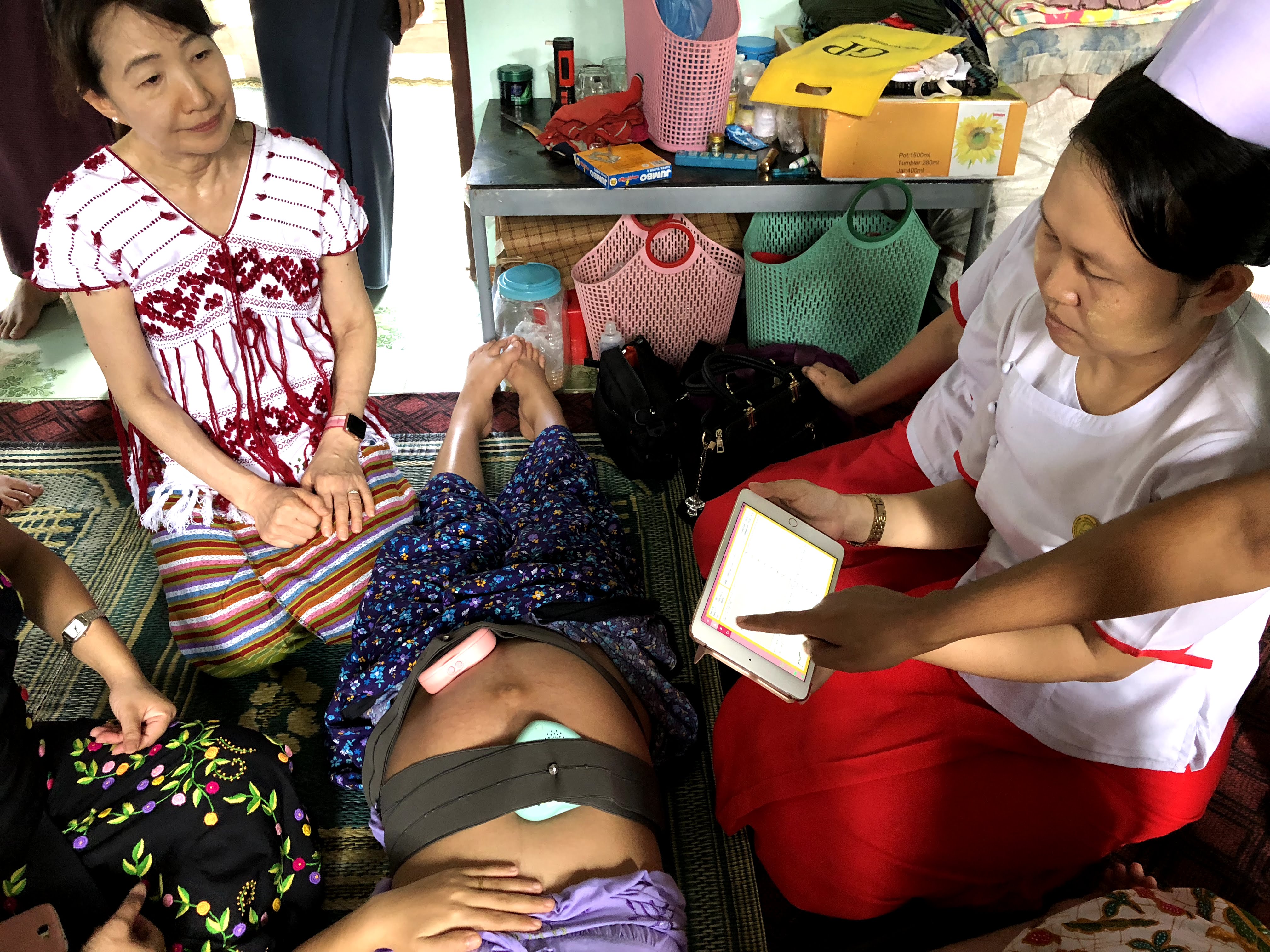

Femtech startup Flora empower women to track their menstrual cycles, manage symptoms, and access reproductive health information.�
The iCTG allows expectant mothers to check fetal health from the comfort of their home or in remote locations�
The blue sensor measures the pregnant woman's abdominal contractions (labor pains), and the pink one measures the fetal heart rate
Find out more about Japan’s initiatives here



